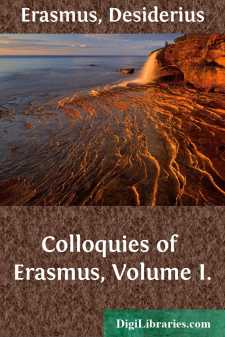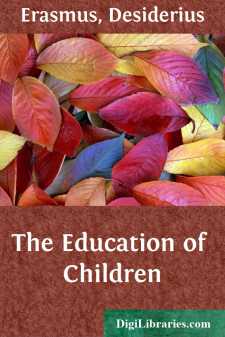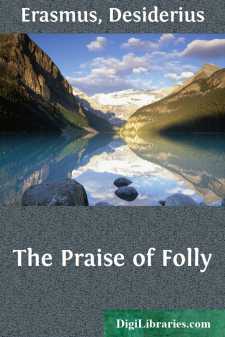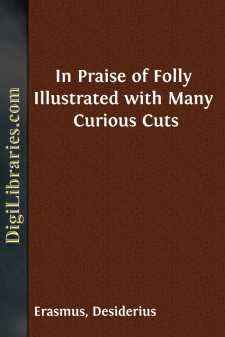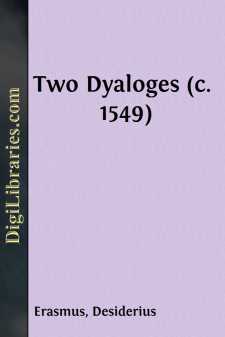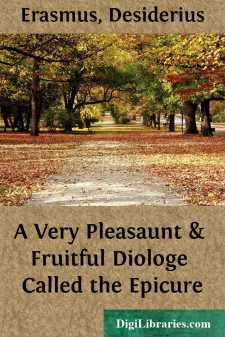Categories
- Antiques & Collectibles 13
- Architecture 36
- Art 48
- Bibles 22
- Biography & Autobiography 813
- Body, Mind & Spirit 142
- Business & Economics 28
- Children's Books 15
- Children's Fiction 12
- Computers 4
- Cooking 94
- Crafts & Hobbies 4
- Drama 346
- Education 46
- Family & Relationships 57
- Fiction 11828
- Games 19
- Gardening 17
- Health & Fitness 34
- History 1377
- House & Home 1
- Humor 147
- Juvenile Fiction 1873
- Juvenile Nonfiction 202
- Language Arts & Disciplines 88
- Law 16
- Literary Collections 686
- Literary Criticism 179
- Mathematics 13
- Medical 41
- Music 40
- Nature 179
- Non-Classifiable 1768
- Performing Arts 7
- Periodicals 1453
- Philosophy 64
- Photography 2
- Poetry 896
- Political Science 203
- Psychology 42
- Reference 154
- Religion 513
- Science 126
- Self-Help 84
- Social Science 81
- Sports & Recreation 34
- Study Aids 3
- Technology & Engineering 59
- Transportation 23
- Travel 463
- True Crime 29
Colloquies of Erasmus, Volume I.
Categories:
Description:
Excerpt
Prefatory Note.
The present English version of Erasmus' Colloquies is a reprint of the translation of N. Bailey, the compiler of a well-known Dictionary. In his Preface Bailey says, "I have labour'd to give such a Translation as might in the general, be capable of being compar'd with the Original, endeavouring to avoid running into a paraphrase: but keeping as close to the original as I could, without Latinizing and deviating from the English Idiom, and so depriving the English reader of that pleasure that Erasmus so plentifully entertains his reader with in Latin."
This is a modest and fair account of Bailey's work. The chief peculiarity of his version is its reproduction of the idiomatic and proverbial Latinisms, and generally of the classical phrases and allusions in which Erasmus abounds, in corresponding or analogous English forms. Bailey had acquired, perhaps from his lexicographical studies, a great command of homely and colloquial English; the words and phrases by which he frequently represents rather than construes Erasmus' text have perhaps in many instances not less piquancy than the original. Thus his translation, as a piece of racy English, has a certain independent value of its own, and may be read with interest even by those who are familiar with the original.
In preparing this volume for the press, Bailey's text has been carefully revised, and clerical errors have been corrected, but the liberty has not been taken of altering his language, even to the extent of removing the coarsenesses of expression which disfigure the book and in which he exaggerates the plain speaking of the original. Literary feeling is jealous, no doubt justly, on general grounds, of expurgations.
Further, throughout the greater part of the work, the translation has been closely compared with the Latin original. Occasional inaccuracies on Bailey's part have been pointed out in the Appendix of Notes at the end of the volume. The literal sense of the original, sometimes its language, has in many of these notes been given, with the view of increasing the interest of perusal to the general reader. The remainder of the notes are, like the contents of the volume, of a miscellaneous character: philological, antiquarian, historical. They do not, of course, profess to supply an exhaustive commentary; but are designed to afford elucidations and illustrations of the text that may be intelligible and instructive to the English reader, and possibly to some extent to the scholar.
The Colloquies of Erasmus form a rich quarry of intellectual material, from which each student will extract that which he regards to be of peculiar value. The linguist, the antiquary, the observer of life and manners, the historian, the moralist, the theologian may all find themselves attracted to these pages. It is hoped that there are many who at the present time will welcome the republication, in English, of a book which not only produced so great a sensation in Europe on its appearance, but may be said to have had something to do with the making of history....


